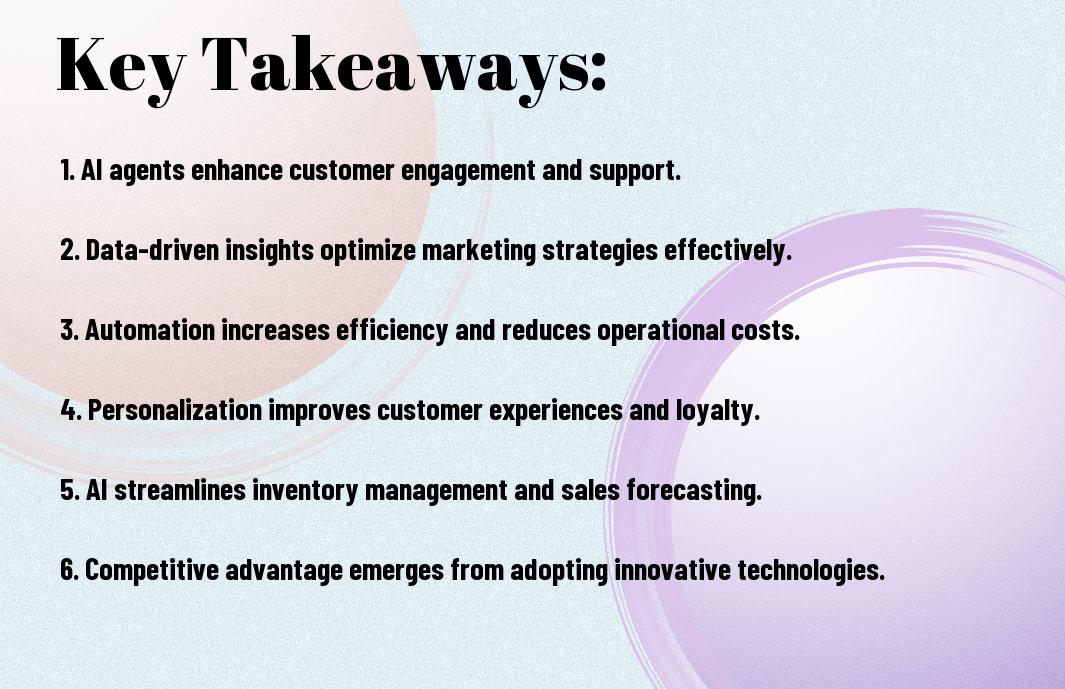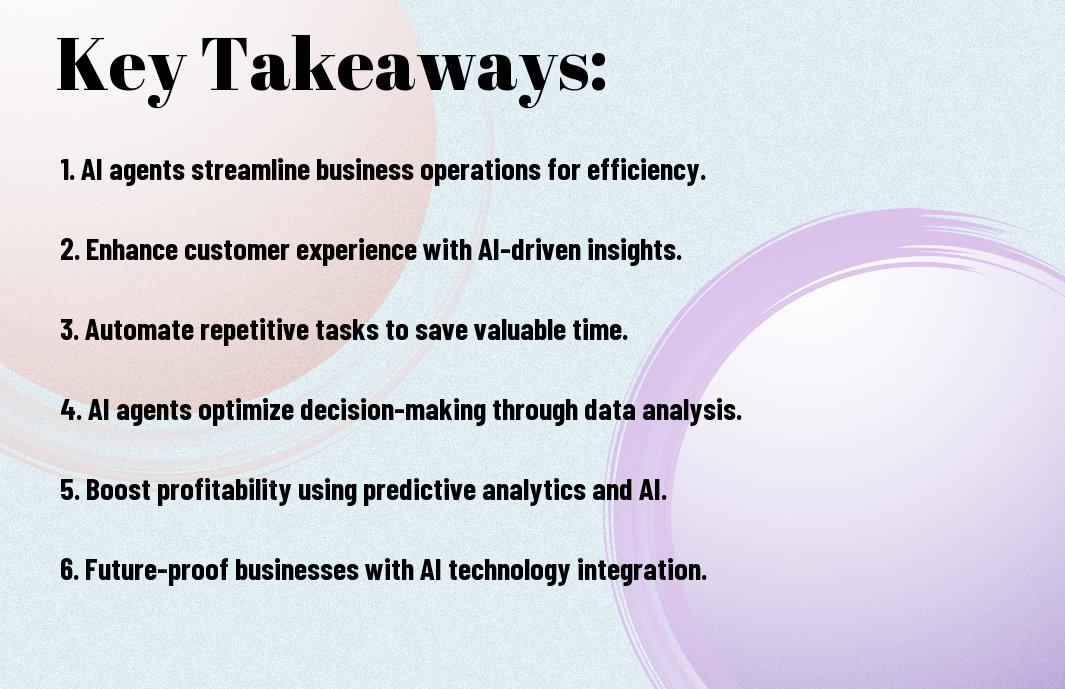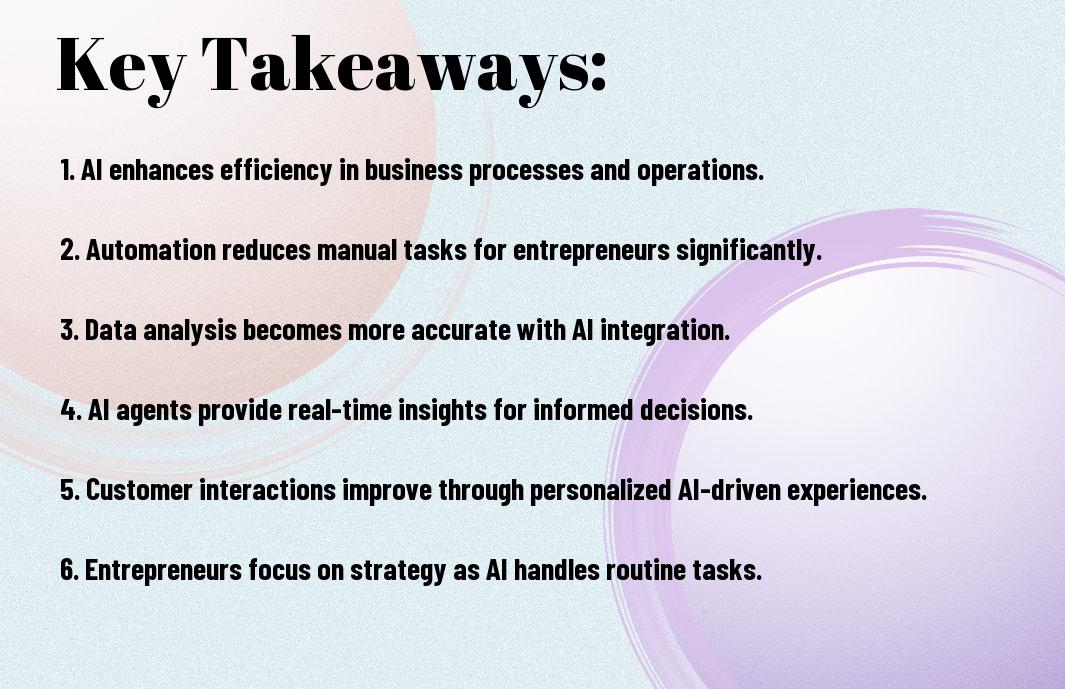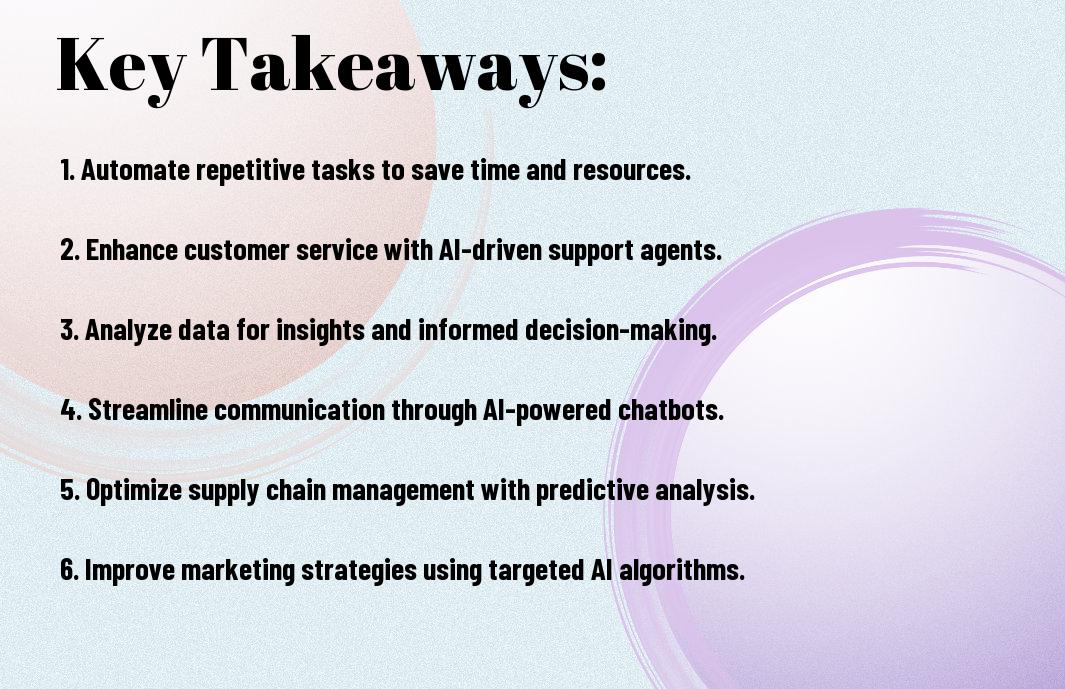As you navigate the ever-changing landscape of social media, you’re likely looking for ways to harness its power to drive your business forward. You can boost your online presence and reach a wider audience by leveraging social media effectively. To help you achieve this, you can access The Ultimate Guide to Leveraging Social Media Trends for Business Growth in 2024, which provides valuable insights and strategies to enhance your social media marketing efforts, helping you grow your business and stay ahead of the competition.
Key Takeaways:
- Developing a strong social media presence is necessary for businesses to reach their target audience and increase brand awareness, as it allows them to share their story, showcase their products or services, and engage with customers in a more personal way.
- Creating engaging content is vital to social media success, and businesses should focus on producing high-quality, relevant, and consistent content that resonates with their audience, including videos, images, and blog posts that provide value and insights.
- Measuring and tracking social media performance is important to understand what works and what doesn’t, and businesses should use analytics tools to monitor their metrics, such as engagement rates, website traffic, and conversions, to adjust their social media strategy and optimize their results.

Social Media Platform Selection
For effective social media marketing, you need to choose the right platforms for your business. You’ll want to consider factors like your target audience, content type, and resources to make an informed decision.
Identifying Your Target Audience’s Preferred Platforms
Alongside your business goals, analyzing your target audience’s online behavior will help you determine which platforms they frequent most, allowing you to focus your efforts on those channels and maximize your reach.
Platform-Specific Strategy Development
Beneath the surface of each social media platform lies a unique set of features and user behaviors that you can leverage to your advantage, enabling you to tailor your content and engagement strategies to each platform’s strengths.
Social media platforms are constantly evolving, and developing a platform-specific strategy allows you to stay ahead of the curve and adapt to changes as they happen, ensuring your content resonates with your audience and drives meaningful engagement, ultimately leading to business growth and increased brand awareness, as you learn to navigate the intricacies of each platform and refine your approach to meet your specific business needs.

Content Creation and Management
Some of the most effective social media strategies involve creating engaging content, and you can learn more about this by visiting Leveraging Social Media for Business Growth strategies. This will help you develop a plan to grow your business.
Creating Engaging and Shareable Content
At this stage, you’ll need to focus on producing content that resonates with your audience, making them more likely to share it with others, thus expanding your reach and growing your business.
Content Calendar and Posting Schedule
About planning and organizing your content, you’ll want to create a schedule that ensures consistency and efficiency in your posting, which is vital for keeping your audience engaged.
The key to a successful content calendar is to plan ahead, allowing you to prepare and schedule your posts in advance, saving you time and ensuring that your content is always fresh and relevant to your audience, helping you to achieve your business goals.
Community Building
Keep in mind that community building is a key aspect of leveraging social media for business growth, as it allows you to connect with your target audience and establish your brand as an authority in your industry.
Engagement Tactics and Response Strategies
Against the backdrop of increasing competition on social media, you need to develop effective engagement tactics and response strategies to stand out and build a loyal community, by responding promptly to comments and messages, and using social media analytics to track your performance.
Building Brand Advocates
Along with creating engaging content, you should focus on building brand advocates who will help spread the word about your business, by incentivizing your loyal customers to share their experiences with your brand on social media.
Community is at the heart of building brand advocates, as you need to create a sense of belonging among your customers, by sharing user-generated content, hosting giveaways, and offering exclusive rewards to your loyal followers, which will help you build a loyal community that will advocate for your brand and drive business growth.
Paid Social Media Advertising
After establishing your social media presence, you can explore paid advertising options to amplify your reach, as seen in the 10 Best Ways to Leverage Social Media for your business growth.
Budget Allocation and ROI Tracking
Among the key considerations for paid social media advertising, you need to determine your budget allocation and track your return on investment (ROI) to ensure you’re getting the most out of your ad spend.
Ad Campaign Optimization
Tracking the performance of your ad campaigns is crucial to identify areas for improvement, allowing you to adjust your strategy and maximize your results.
Paid social media advertising requires continuous monitoring and optimization to achieve your business goals, and by doing so, you can refine your targeting, ad creative, and bidding strategy to increase your conversions and drive business growth, enabling you to make data-driven decisions to scale your campaigns effectively.
Analytics and Performance Tracking
Your social media analytics provide valuable insights into your business’s online performance, helping you refine your strategy and maximize your return on investment.
Key Metrics to Monitor
Beneath the surface of your social media metrics, engagement rates, follower growth, and website traffic are key indicators of your online success, allowing you to gauge the effectiveness of your content and campaigns.
Data-Driven Decision Making
Behind every successful social media strategy lies a foundation of data-driven decision making, where you use your analytics to inform and optimize your content, targeting, and advertising efforts.
Due to the wealth of data available, you can continually assess and adjust your approach, ensuring your social media marketing efforts are aligned with your business objectives and yielding the best possible results, enabling you to make informed decisions that drive your business forward.
Social Media Crisis Management
Now that you have established your social media presence, it’s vital to consider the potential risks and have a plan in place to mitigate them. Your social media crisis management strategy should include prevention, preparedness, and response protocols to protect your brand’s reputation.
Prevention and Preparedness
Approximately, about having a plan in place, you can avoid or minimize the impact of a social media crisis. Your strategy should include monitoring your social media accounts, identifying potential risks, and having a team in place to handle any issues that may arise.
Response Protocol
Between the time a crisis occurs and your response, you need to act quickly to contain the situation. Your response protocol should include acknowledging the issue, apologizing if necessary, and providing a solution or explanation.
Prevention is key, but when a crisis does occur, your response protocol should be swift and effective. You should have a clear understanding of your brand’s messaging and tone, and be able to communicate effectively with your audience to resolve the issue and maintain their trust in your brand. You should also be prepared to adapt your response as the situation evolves, and be transparent in your communication to ensure that your audience feels informed and valued.
Summing up
Considering all points, you now have a comprehensive understanding of how to leverage social media for your business growth. You can utilize these strategies to enhance your online presence, engage with your audience, and drive sales. By applying these techniques, you will be able to optimize your social media efforts and take your business to the next level, increasing your chances of success in the digital landscape, and ultimately, growing your business through effective social media management.
FAQ
Q: What is the primary goal of leveraging social media for business growth?
A: The primary goal of leveraging social media for business growth is to increase brand awareness, drive website traffic, and generate leads and sales. By creating and implementing a well-planned social media strategy, businesses can reach a larger audience, build customer relationships, and ultimately drive revenue growth. Effective social media marketing can help businesses to establish their brand identity, engage with customers, and stay ahead of the competition in the digital landscape.
Q: Which social media platforms are most effective for business growth?
A: The most effective social media platforms for business growth vary depending on the target audience and industry. However, the most popular platforms for businesses include Facebook, Instagram, Twitter, LinkedIn, and YouTube. Facebook is ideal for B2C businesses, while LinkedIn is more suitable for B2B businesses. Instagram and YouTube are visual-centric platforms that can be effective for businesses with strong visual content. Twitter is ideal for real-time engagement and customer service. By understanding the unique features and audience demographics of each platform, businesses can create a tailored social media strategy that meets their specific needs.
Q: How can businesses measure the success of their social media marketing efforts?
A: Businesses can measure the success of their social media marketing efforts by tracking key performance indicators (KPIs) such as engagement rates, website traffic, lead generation, and conversion rates. Social media analytics tools can provide insights into the performance of social media campaigns, helping businesses to identify areas of improvement and optimize their strategy. Additionally, businesses can use social media listening tools to monitor brand mentions, sentiment, and customer feedback, allowing them to adjust their strategy to better meet customer needs and preferences.
Q: What type of content is most effective for social media marketing?
A: The most effective type of content for social media marketing varies depending on the platform and target audience. However, high-quality, engaging, and relevant content that resonates with the target audience is imperative for social media success. This can include a mix of promotional, educational, and entertaining content, such as blog posts, videos, infographics, and user-generated content. Businesses should focus on creating content that provides value to their audience, whether it’s educating them about a product or service, entertaining them with engaging stories, or inspiring them with motivational quotes and images.
Q: How often should businesses post on social media to maximize engagement and growth?
A: The frequency of social media posting depends on the platform, audience, and content strategy. However, consistency is key to maintaining a strong social media presence. Businesses should aim to post at least 3-5 times per week on Facebook and Instagram, 5-10 times per week on Twitter, and 1-2 times per week on LinkedIn and YouTube. It’s also important to consider the timing of posts, with peak hours typically being during lunch breaks, early evenings, and weekends. By posting consistently and at optimal times, businesses can increase engagement, reach a larger audience, and drive website traffic and sales.












